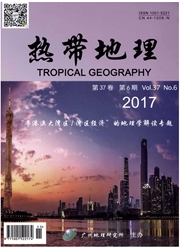

 中文摘要:
中文摘要:
土地问题是我国城中村研究的核心问题。在对珠江三角洲地区城中村进行实地调研的基础上,就城中村主体的行为特征、城中村土地供应和需求的基本特征进行了总结。以理论推导与现实印证相结合的方法,基于经济学中的供求理论,对城中村土地供求变化进行了动态均衡分析。从村庄"内部人"的视角,考察在各种内外部因素变动(征地与留用地,城中村改造,村民城市化转型)的情况下,城中村主体如何实现土地的供应和需求均衡。总体上,城中村土地变化表现为土地需求被动地追随(因征地而发生的)供应减少而下降,以实现供求均衡。具体而言,在城中村形成阶段,供求均衡借助乡村工业化,即农业用地转为工业用地而实现;在城中村存续阶段,存在土地供求的逐渐失衡;在城中村改造阶段,供求均衡最终必须通过城市化,即村民转为市民而实现。
 英文摘要:
英文摘要:
Land issue is a crucial topic in China's urban village studies.In this article 6 urban villages in the cities of the Pearl River Delta are selected to be studied,the characteristics of their main bodies' behavior,the conditions of land supply and land demand are summarized.With the theoretical deduction based on the supply-demand theory in economics,from an insider's point of view,a dynamic balance analysis is made over the supply and demand of urban village land.The paper aims at finding out how the main bodies in urban villages maintain the balance of land supply and demand in the background of inside and outside changes(land expropriation,urban village alteration,and the villagers' adaptation into citizens).Generally speaking,the land demand of the urban village follows the drop of land supply and declines passively to maintain the land supply-demand balance.In formation phase of the urban village,the balance is achieved by industrialization,in which a large amount of arable land is changed into industrial land;in standstill phase of the urban village,there is imbalance between land supply and demand;and in alteration phase of the urban village,the balance can only be achieved by urbanization,in which the villagers must be changed into urban citizens.
 关于许学强:
关于许学强:
 同期刊论文项目
同期刊论文项目
 同项目期刊论文
同项目期刊论文
 期刊信息
期刊信息
